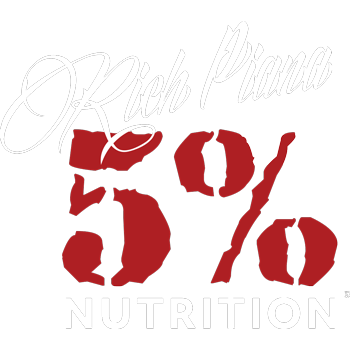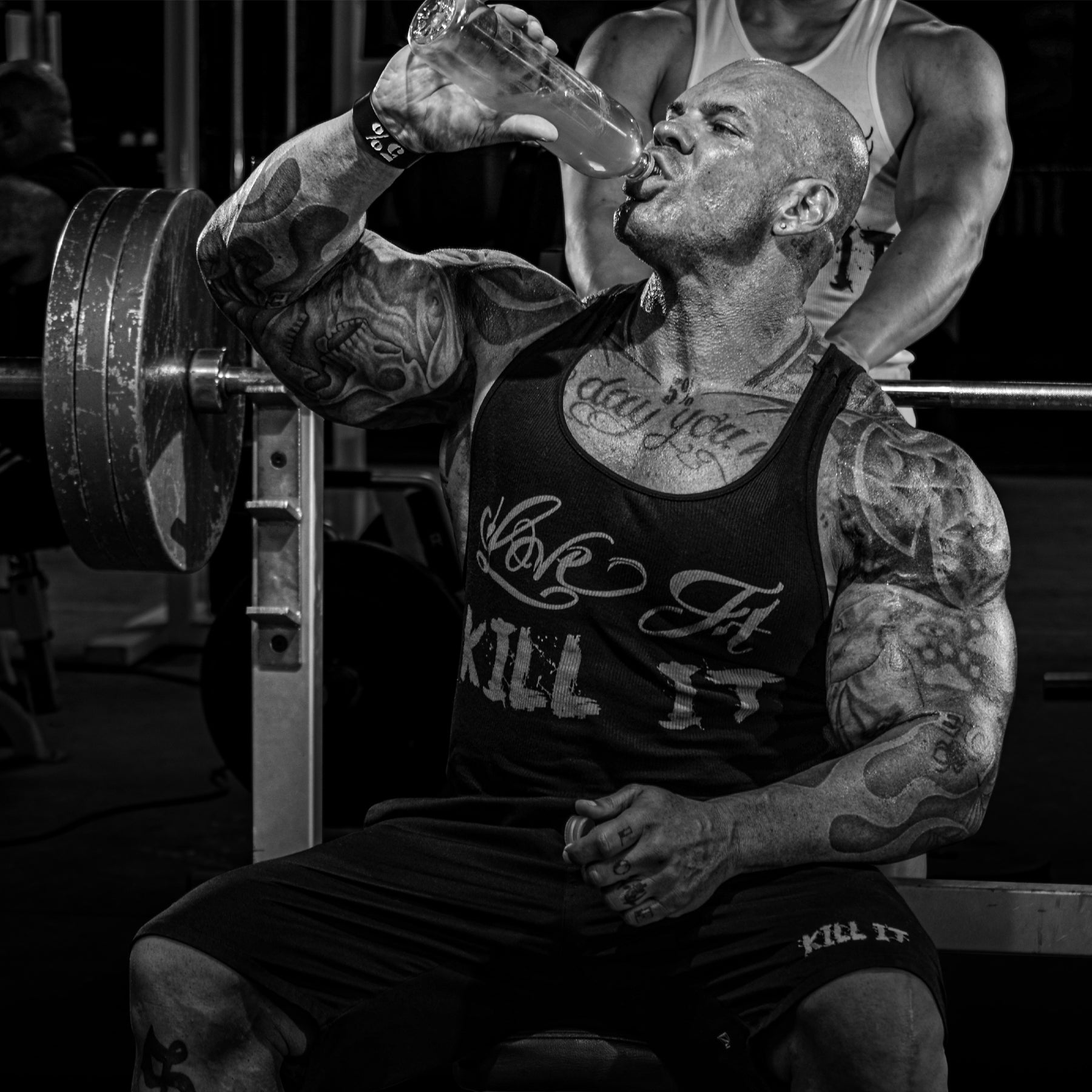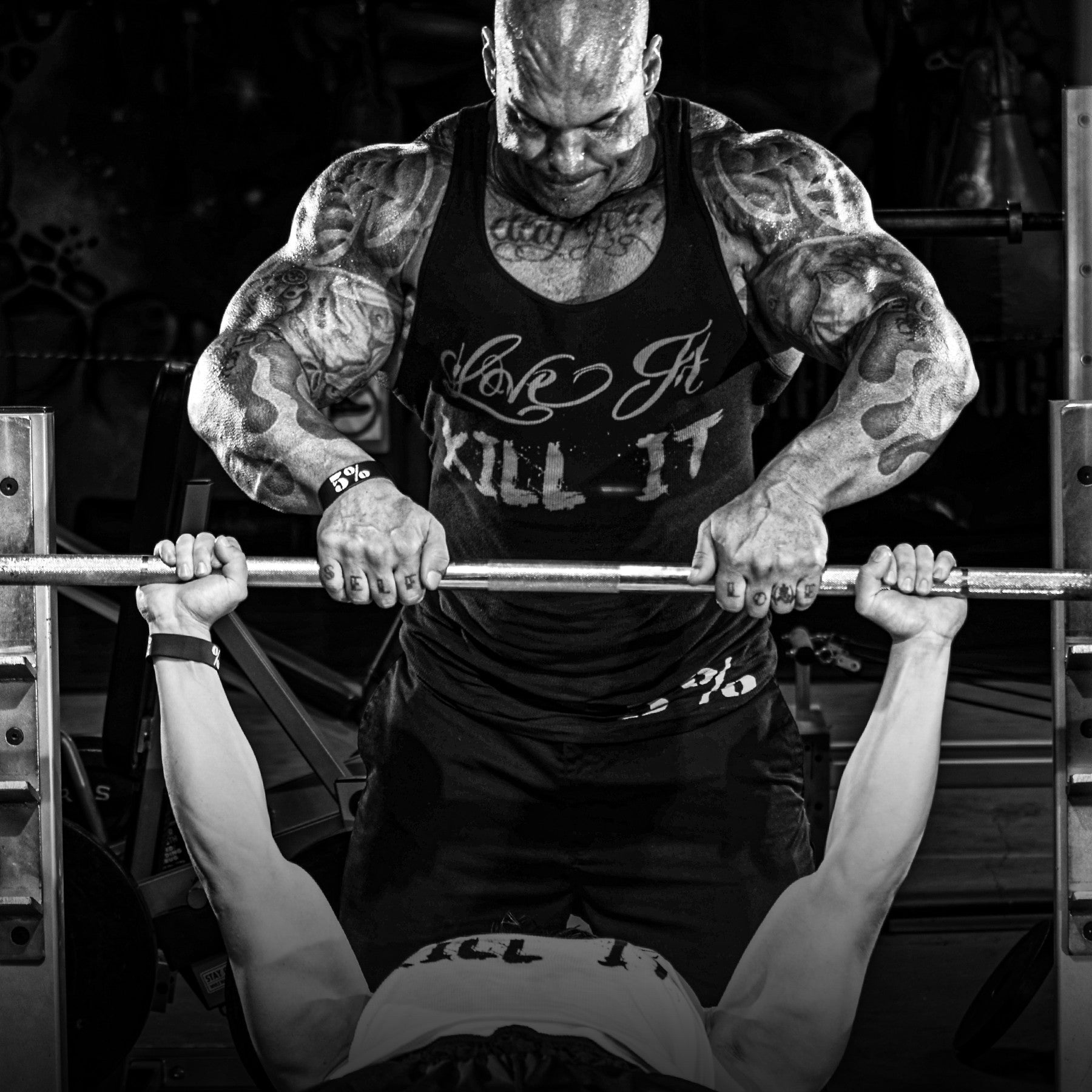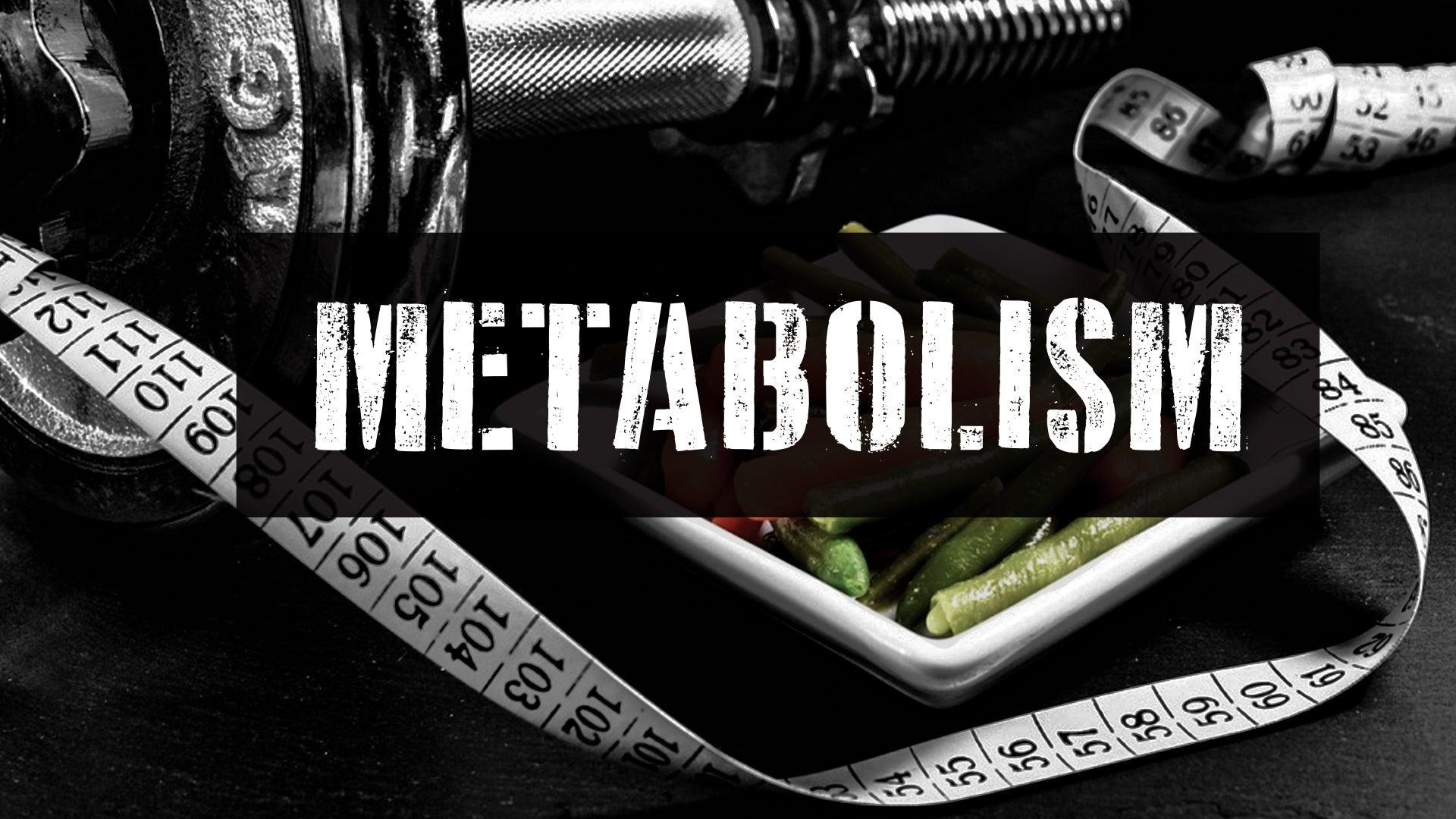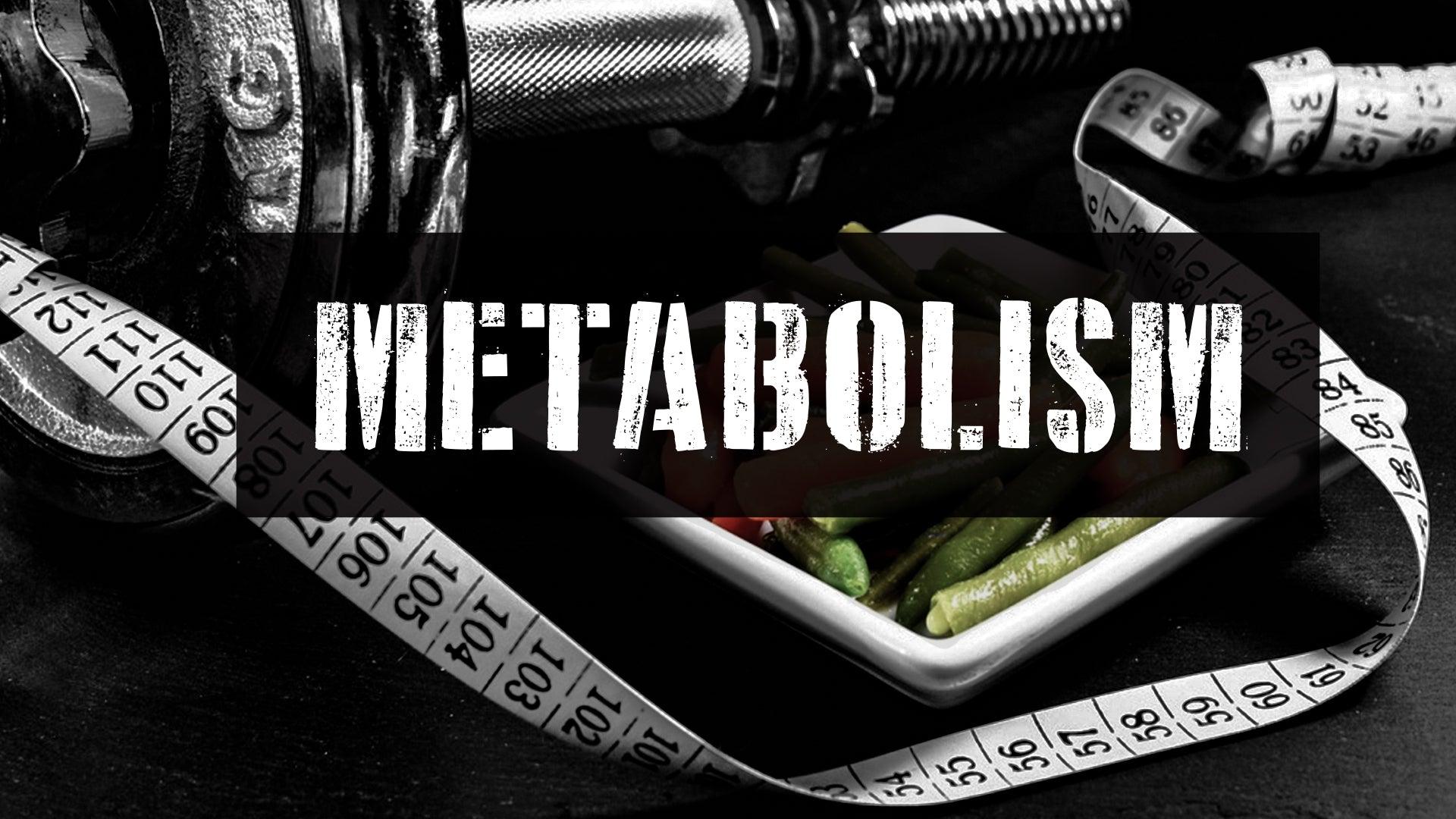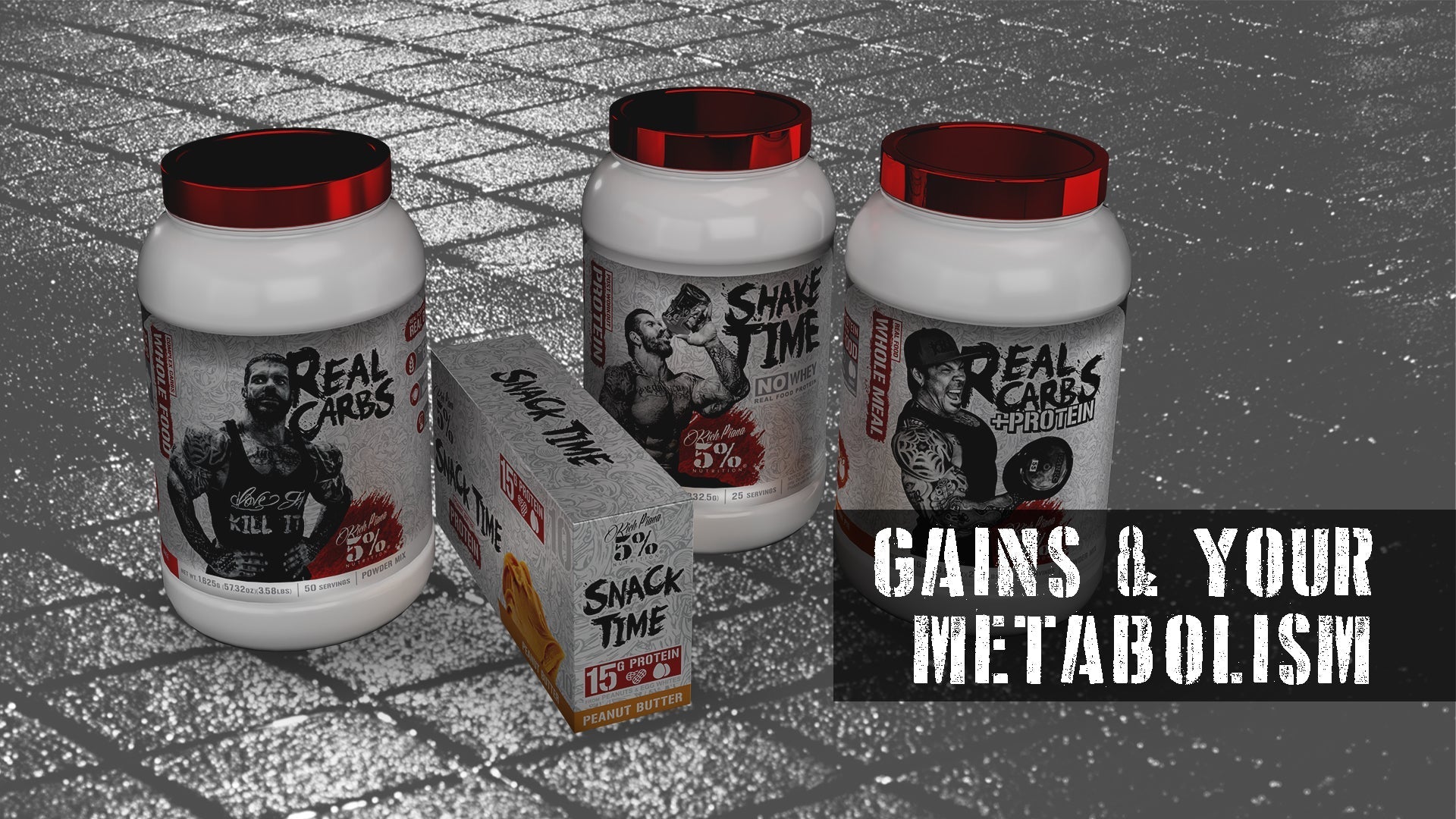In Parts 1 and 2, we took a look at what metabolism is, and the 2 phases involved. We also looked at BMR and the factors that impact it. In Part 3 of our look at How The Metabolism Works we will take a look at other factors that impact your BMR, and calculate daily calorie needs using the Harris-Benedict formula.
Other Factors That Impact BMR - The Thermic Effect Of Food
We have seen that your diet affects your BMR. Your metabolism naturally increases after you eat (or drink) a meal. That’s because energy is needed for digestion and utilization of your meal. This is true if you’ve eaten a whole food meal, or had a 5% shake, such as Real Carbs + Protein. Your BMR will stay higher for a few hours after eating, then return to normal. (1)
Different macronutrients increase BMR by varying amounts. (2)
For example:
- Proteins increase BMR by 20–30%.
- Carbohydrates increase BMR by 5–10%.
- Fats increase BMR by 0–5%.
How Does Exercise Affect Your Metabolism?
During intense exercise, which means both resistance exercise and cardio, your muscles might burn through as many as 800 calories per hour. For example, cardio (running) burns the most calories, depending on body weight (as well as other factors). If, for example, you weigh 155 lbs, and run for 30 minutes, you can burn approximately 400 calories. Using our 155 lb example, if you are jogging for 30 minutes, you will burn about 250 calories. (2)
What about weights? No doubt your intense workouts burn calories, but not as much as cardio. For example, 30 minutes of weightlifting can burn up to 108 calories at 155 lbs body weight. The more you weigh, and the harder and longer you train, the more you burn. (2)
As mentioned, muscle tissue burns more calories than fat. The more muscle you have, the more calories you will burn. For example, at rest, you will burn approximately 4-7 calories per lb of muscle you have. ( 3)
As noted, all of these numbers are estimates.
Calculating Your Daily Calorie Needs
Taking into account everything we have looked at so far, you may want to calculate your daily calorie requirements. Why? So you know exactly what you should eat every day according to your goals.
You can use online calculators that allow you to figure out your daily calorie needs relatively quickly. Or, you can exercise those math skills and add them up manually as follows.
We will use the Harris-Benedict formula, which takes into account weight, height, age, and gender. (4)
Men:
BMR = 66 + (13.7 × weight in kg) + (5 × height in cm) – (6.8 × age in years)
Women:
BMR = 655 + (9.6 × weight in kg) + (1.8 × height in cm) – (4.7 × age in years)
Converted into pounds and inches, the formulas look like this:
Men:
BMR = 66.74 + (6.24 x weight in pounds) + (12.7 x height in inches) - (6.75 x age in years)
Women:
BMR = 65.51 + (4.35 x weight in pounds) + (4.7 x height in inches) - (4.7 x age in years)
The next step is to include the number of calories you burn while performing daily activities. This is based on your lifestyle and activity level.
- Sedentary - If you get little or no exercise, multiply your BMR by 1.2.
- Light Activity - If you exercise lightly for 1-3 days per week, multiply your BMR by 1.375.
- Moderate Activity - If you exercise moderately 3-5 days per week, multiply your BMR by 1.55.
- Very Active - If you engage in hard exercise 6-7 days a week, multiply your BMR by 1.725.
- Extremely Active - If you engage in very hard exercise 6-7 days per week or have a demanding physical job, multiply your BMR by 1.9.
The final number is an estimate of the number of calories you need per day to maintain your weight. Here is an example:
We will use a 28-year-old, 6 ft., 200lb male:
BMR = 66 + 6.23 x 200 (weight in pounds) + 12.7 x 72 (height in inches) - 6.8 x 28 (age in years), or 66 + 1246 + 914.4 – 190.4 = 2,036 calories at complete rest.
Now, we’ll use a moderate activity level:
2,036 x 1.55 activity level = 3156 calories to maintain body weight.
Now that we know how many calories are required to maintain your current weight, the next step is to make adjustments based on your goals. In Part 4 of our Series, we will look at how to do this. We will also look at the best 5% supplements to use for your goals.
References:
- Physiology, Metabolism - StatPearls - NCBI Bookshelf (nih.gov)
- Calorie Burn Rate Calculator - Health Encyclopedia - University of Rochester Medical Center
- Controversies in Metabolism (unm.edu)
- Harris-Benedict Calculator (total Energy Expenditure TDEE & Bmr) | Total Daily Energy Expenditure (purecalculators.com)
